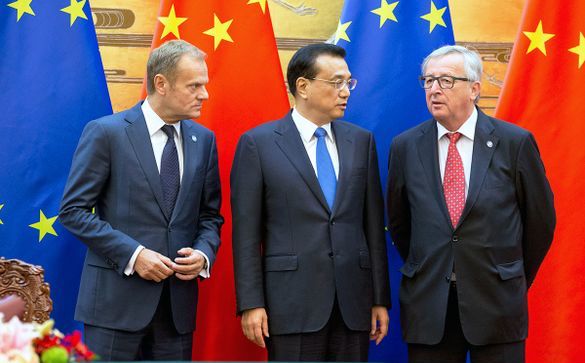
Brussels, 2 July 2018 – On the eve of the 36th EU-China Human Rights Dialogue and the 20th EU-China Summit, both scheduled to take place in Beijing this month, the International Campaign for Tibet calls on the European Union to use these meetings to press China for concrete improvements in the human rights situation in Tibet. Specifically, the EU should ask China for access to Tibet to get a first-hand understanding of the situation.
In recent years, the EU has expressed its strong concern about the deteriorating human rights situation in China and Tibet on numerous occasions, including in international fora such as the UN Human Rights Council and through statements by its delegation in Beijing. During the joint press conference with China’s Prime Minister Li Keqiang following the 2015 EU-China Summit, European Council President Donald Tusk for example directly referred to concerns on Tibet and called for the Sino-Tibetan dialogue to be resumed.
However, these efforts have so far failed to achieve tangible results on the ground, and the situation even keeps fastly deteriorating. Tibetans continue to face discrimination, whether it is in their freedom of movement or right to get a passport. Since the last EU-China Summit in June 2017, Chinese authorities in Tibet have stepped-up surveillance of online and phone communications, in a bid to control every aspect of public and private life. As stringent new regulations on Religious Affairs were adopted, the authorities also imposed further interferences to the practice of Tibetan Buddhism. The enforced displacement of Tibetan nomads from their ancestral land intensified –often under the pretext of environmental protection, poverty alleviation or development. And hundreds of Tibetans continued to be disappeared, arbitrarily detained or condemned to harsh prison sentences simply for exercising or promoting their own rights or the rights of others – a prominent example is that of Tibetan language advocate Tashi Wangchuk, who was sentenced on 22 May to five years imprisonment on politically motivated charges of ‘inciting separatism’.
“Under President Xi Jinping, Chinese attacks on the rights, culture and lifestyle of the Tibetan people have shown no sign of abating. China has also enforced a complete lockdown of Tibet, preventing the world to know about its gross human rights violations there. On the tenth anniversary of the wave of protests that swept across the Tibetan plateau in 2008, the EU must insist on the urgency to resume the Sino-Tibetan dialogue and call for concrete and tangible human rights improvements on the ground,” said ICT’s EU Policy Director Vincent Metten.
In particular, the EU should reiterate its call for the release of Tashi Wangchuk –not only during the discussions, but also publicly after the Summit. As it celebrates a joint year of tourism with China, the EU should also press the Chinese government to give EU citizens, and in particular diplomats, journalists and parliamentarians, unfettered access to Tibet, based on the principle of reciprocity and in line with the EU’s 2016 Strategy on China, which mentions the objective to “Promote reciprocity, a level playing field and fair competition across all areas of co-operation.”
Ahead of the Summit, ICT and 23 other NGOs addressed a joint letter to European Commission President Jean-Claude Junker and European Council President Donald Tusk, urging the EU to make human rights in China a top priority and to develop a strategy to ensure the release of all those detained solely for having exercised their human rights.